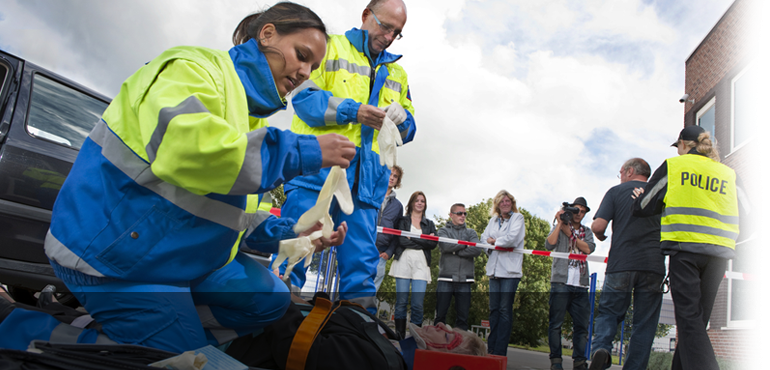| Toll Free : 1844 495 7333(injury hotline- new cases only) | |
| Text a Personal Injury Lawyer 24/7 and get instant help.TM (416 931 5015) | |
| Head Office : 905 495 7333 |
How do Insurance Companies Set Reserves to Pay Out On a Claim?
June 3, 2014
When accident victims are seriously injured in a car accident many of them are unaware that their insurance company is under a legal obligation to set sufficient reserves to pay out on the personal injury claim. The Canadian insurance industry took a beating during the past several decades and experienced the worst year in 1981 because of inadequate reserves were set giving rise to significant losses. Over the past few decades many insurance companies went out of business and this caused the Canadian government to step in and regulate the insurance industry. The Office of the Superintendent of Financial Institutions Act became law in 1985 with the sole purpose of regulating financial institutions and to establish the public’s confidence in the insurance companies.
Insurance companies had to now ensure that their practices complied with the regulatory guidelines by making sure that they had enough reserves to pay out on an insurance claim. Each and every insurance company doing business in Canada has to ensure that it has adequate funds that are set aside to meet insurance claims. So when you file a claim to an insurance company after being injured in a motor-vehicle accident the insurance adjuster is under a legal obligation to investigate the claim, the facts and circumstances of the accident, the injuries and impairments suffered by the accident victim and set aside an amount of money to pay out on the claim at the appropriate time. There are different formulas that insurance adjusters use for deciding on what amount would be an adequate reserve to pay out on a claim. In is important to note that the insurance adjuster is under no legal duty to disclose the reserve amount to your lawyer handling you accident claim.
At Singh Barristers when an accident victim has suffered significant injuries, our lawyers will always investigate the claim without delay by discussing the facts and circumstances of the car accident, the mechanics of the injury, the extent of the property damage to your vehicle, whether an ambulance was called to the scene, what treatment, if any was provided by the paramedics at scene of the accident, what treatment the injured victim received at the hospital, did the accident victim follow up with the family doctor, what medications was prescribed, was there any x-rays taken and the results thereof, was any rehabilitation treatment recommended by the family doctor, and so on. The purpose of a very detailed evaluation at the early stage of the accident is crucial to ensuring that adequate reserves are set by an insurance adjuster handling your claim.
If you are injured in a car accident you can be rest assured that our personal injury lawyers meticulously prepare a statutory declaration setting out all the relevant and crucial information that is required by an insurance adjuster to set the adequate reserve to
settle your claim. In addition to the statutory declaration our lawyers provide regular updates to an insurance adjuster, such as, results of x-rays and MRI’s, medical prescriptions, family doctors notes and records, hospital records etc., to ensure that as the case develops and more injuries and impairments are diagnosed, the adjuster is fully aware of this and he/she adjusts the reserves to adequately meet the claim. Our car accident lawyers understand how the reserves work and we take all steps that are necessary to make sure that our clients are protected and receive a fair and just settlement of their personal injury claim. For example, when an accident victim consults with one of our personal injury lawyers he or she would be asked questions such as:
1) The date, time and weather conditions of the accident; 2) The approximate speed that the at fault driver was driving; 3) Was the other driver under the influence of any alcohol; 4) Was the other driver distracted by a cell phone or intervening with his radio cd/player or distracted by the passenger of the vehicle; 5) The mechanics of the injuries and impairments experienced immediately at the scene, at the hospital and the family doctors office; 6) The potential damages that are to be claimed; 7) Was the accident victim partly to blame for the accident; 8) Did the accident victim wear a safety belt at the time of the collision; 9) Will there be any defense that would be available to the at fault driver; 10) Was there any independent witnesses at the scene of the accident; 11) Was the other charged; 12) Did the at fault driver remain on the scene of the accident or did he run away; 13) Did the accident victim suffer from any pre-existing health conditions which would have been aggravated by the accident; 14) Will there be a claim for any punitive damages etc. 15) Did the accident victim die as a result of the injuries; 16) The number of dependents of the deceased; 17) The earning capacity of the deceased, etc.
The above list is not exhaustive and each case will depend on the facts and circumstance of the accident. The main aim of a detailed evaluation and investigation immediately after an accident is to ensure that proper reserves are set. Far too often cases become difficult to settle because inadequate information was provided by the accident victim’s lawyer to the adjuster who then set low reserves. An insurance adjuster will be happy to settle a claim at slightly below the reserve amount, provided however that sufficient information was provided on behalf of the injured victims by their lawyer. Our lawyers are fully aware of the advantages of having the insurance adjuster appraised of the accident victim’s condition by providing regular medical updates, assessments and medical reports by the family doctor to ensure that reserves are adjusted from time
to time as the case progresses. If you have been injured in a car accident talk to our motor vehicle accidents lawyers immediately for a free consultation: TOLL FREE: 1-844 495 7333.
How do Insurance Companies Set Reserves to Pay Out On a Claim?
June 3, 2014
When accident victims are seriously injured in a car accident many of them are unaware that their insurance company is under a legal obligation to set sufficient reserves to pay out on the personal injury claim. The Canadian insurance industry took a beating during the past several decades and experienced the worst year in 1981 because of inadequate reserves were set giving rise to significant losses. Over the past few decades many insurance companies went out of business and this caused the Canadian government to step in and regulate the insurance industry. The Office of the Superintendent of Financial Institutions Act became law in 1985 with the sole purpose of regulating financial institutions and to establish the public’s confidence in the insurance companies.
Insurance companies had to now ensure that their practices complied with the regulatory guidelines by making sure that they had enough reserves to pay out on an insurance claim. Each and every insurance company doing business in Canada has to ensure that it has adequate funds that are set aside to meet insurance claims. So when you file a claim to an insurance company after being injured in a motor-vehicle accident the insurance adjuster is under a legal obligation to investigate the claim, the facts and circumstances of the accident, the injuries and impairments suffered by the accident victim and set aside an amount of money to pay out on the claim at the appropriate time. There are different formulas that insurance adjusters use for deciding on what amount would be an adequate reserve to pay out on a claim. In is important to note that the insurance adjuster is under no legal duty to disclose the reserve amount to your lawyer handling you accident claim.
At Singh Barristers when an accident victim has suffered significant injuries, our lawyers will always investigate the claim without delay by discussing the facts and circumstances of the car accident, the mechanics of the injury, the extent of the property damage to your vehicle, whether an ambulance was called to the scene, what treatment, if any was provided by the paramedics at scene of the accident, what treatment the injured victim received at the hospital, did the accident victim follow up with the family doctor, what medications was prescribed, was there any x-rays taken and the results thereof, was any rehabilitation treatment recommended by the family doctor, and so on. The purpose of a very detailed evaluation at the early stage of the accident is crucial to ensuring that adequate reserves are set by an insurance adjuster handling your claim.
If you are injured in a car accident you can be rest assured that our personal injury lawyers meticulously prepare a statutory declaration setting out all the relevant and crucial information that is required by an insurance adjuster to set the adequate reserve to
settle your claim. In addition to the statutory declaration our lawyers provide regular updates to an insurance adjuster, such as, results of x-rays and MRI’s, medical prescriptions, family doctors notes and records, hospital records etc., to ensure that as the case develops and more injuries and impairments are diagnosed, the adjuster is fully aware of this and he/she adjusts the reserves to adequately meet the claim. Our car accident lawyers understand how the reserves work and we take all steps that are necessary to make sure that our clients are protected and receive a fair and just settlement of their personal injury claim. For example, when an accident victim consults with one of our personal injury lawyers he or she would be asked questions such as:
1) The date, time and weather conditions of the accident; 2) The approximate speed that the at fault driver was driving; 3) Was the other driver under the influence of any alcohol; 4) Was the other driver distracted by a cell phone or intervening with his radio cd/player or distracted by the passenger of the vehicle; 5) The mechanics of the injuries and impairments experienced immediately at the scene, at the hospital and the family doctors office; 6) The potential damages that are to be claimed; 7) Was the accident victim partly to blame for the accident; 8) Did the accident victim wear a safety belt at the time of the collision; 9) Will there be any defense that would be available to the at fault driver; 10) Was there any independent witnesses at the scene of the accident; 11) Was the other charged; 12) Did the at fault driver remain on the scene of the accident or did he run away; 13) Did the accident victim suffer from any pre-existing health conditions which would have been aggravated by the accident; 14) Will there be a claim for any punitive damages etc. 15) Did the accident victim die as a result of the injuries; 16) The number of dependents of the deceased; 17) The earning capacity of the deceased, etc.
The above list is not exhaustive and each case will depend on the facts and circumstance of the accident. The main aim of a detailed evaluation and investigation immediately after an accident is to ensure that proper reserves are set. Far too often cases become difficult to settle because inadequate information was provided by the accident victim’s lawyer to the adjuster who then set low reserves. An insurance adjuster will be happy to settle a claim at slightly below the reserve amount, provided however that sufficient information was provided on behalf of the injured victims by their lawyer. Our lawyers are fully aware of the advantages of having the insurance adjuster appraised of the accident victim’s condition by providing regular medical updates, assessments and medical reports by the family doctor to ensure that reserves are adjusted from time
to time as the case progresses. If you have been injured in a car accident talk to our motor vehicle accidents lawyers immediately for a free consultation: TOLL FREE: 1-844 495 7333.









